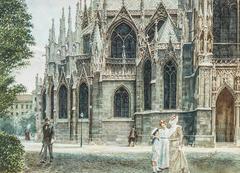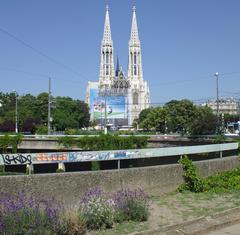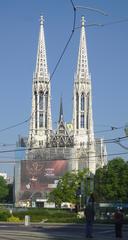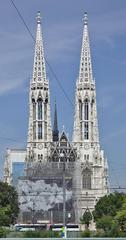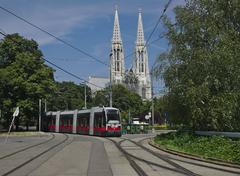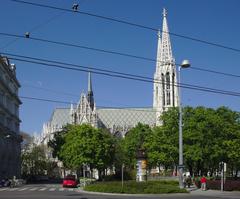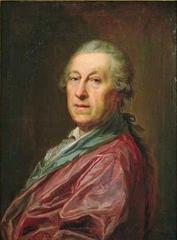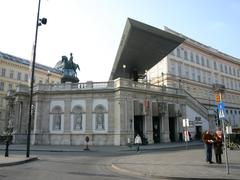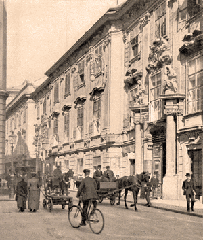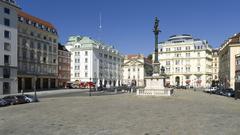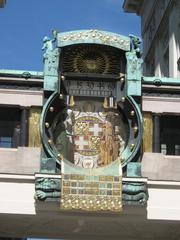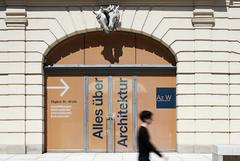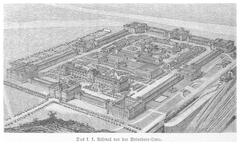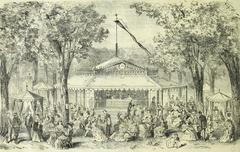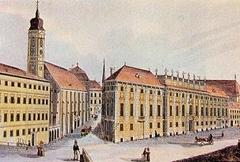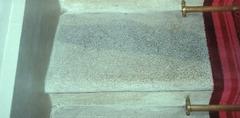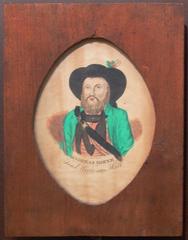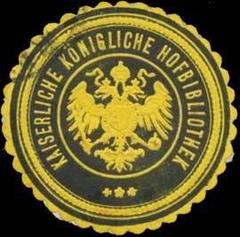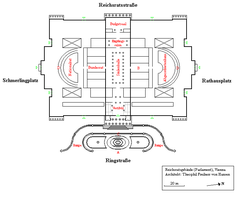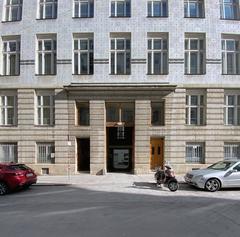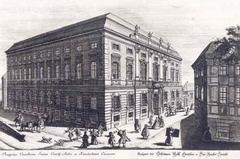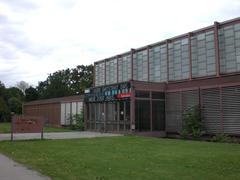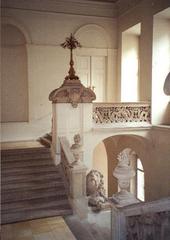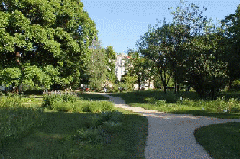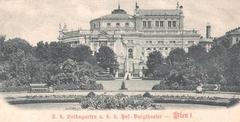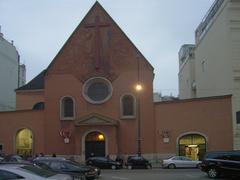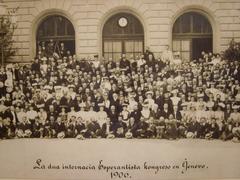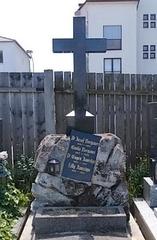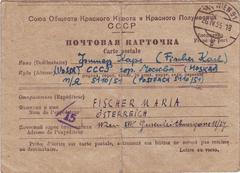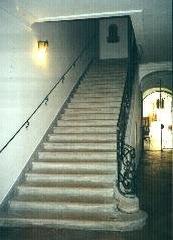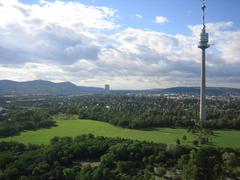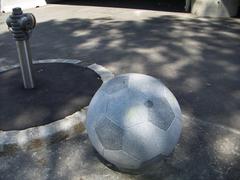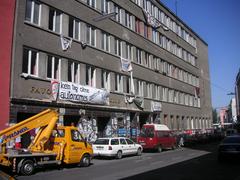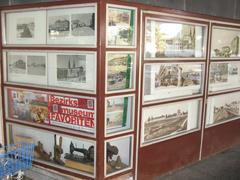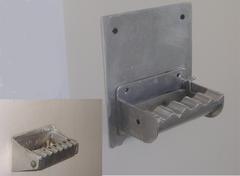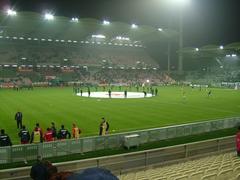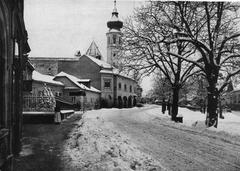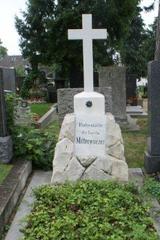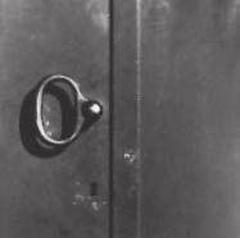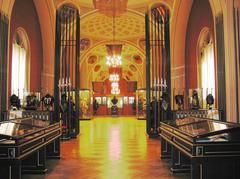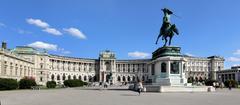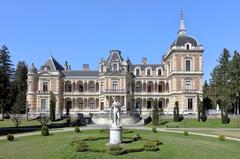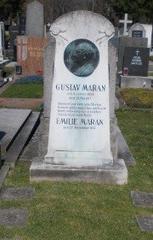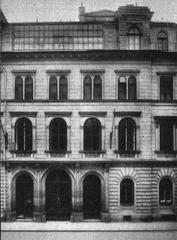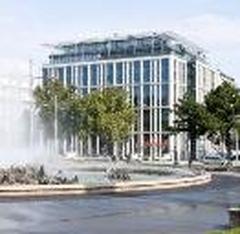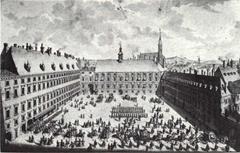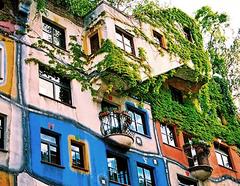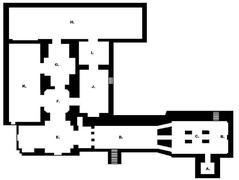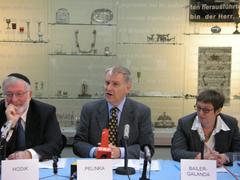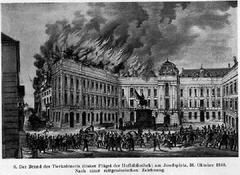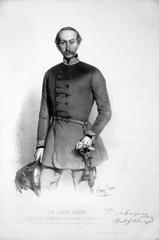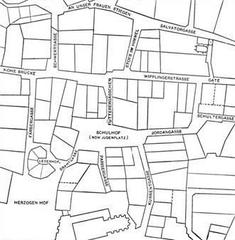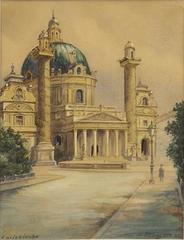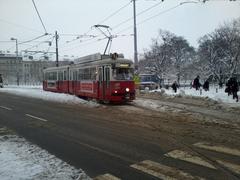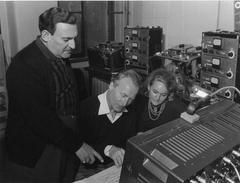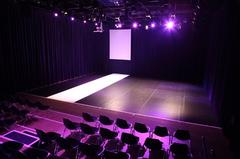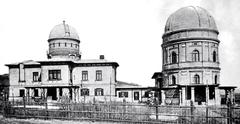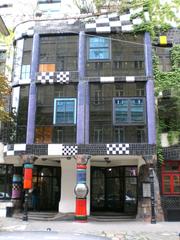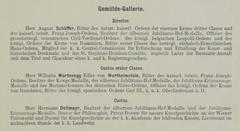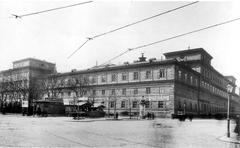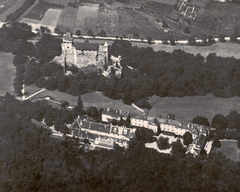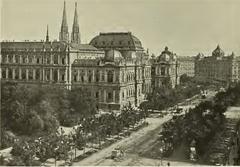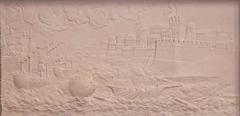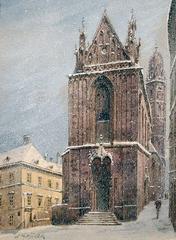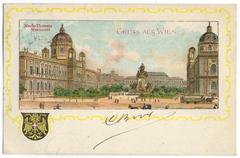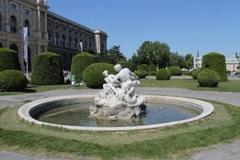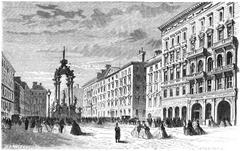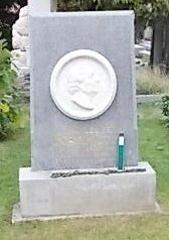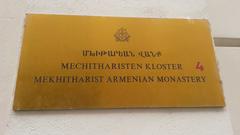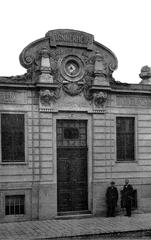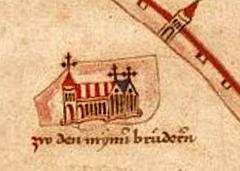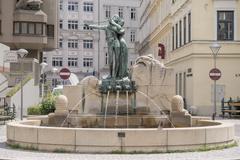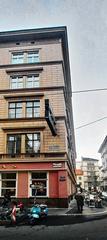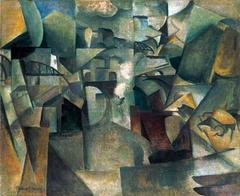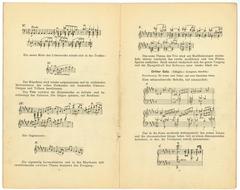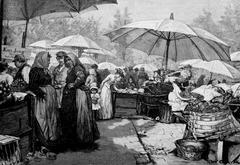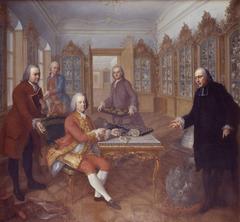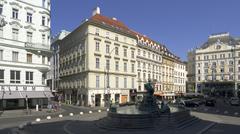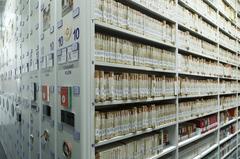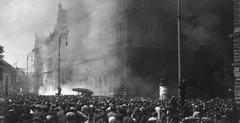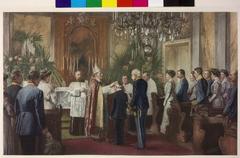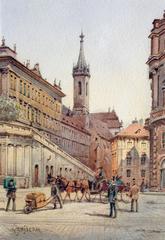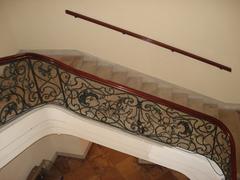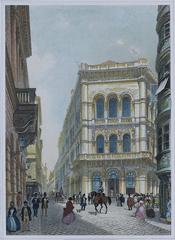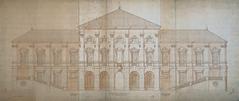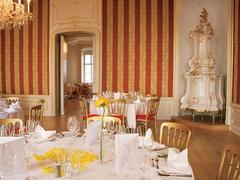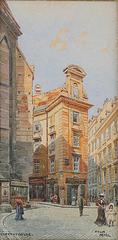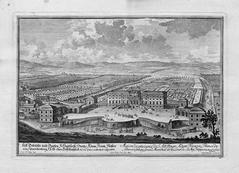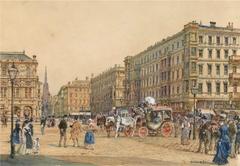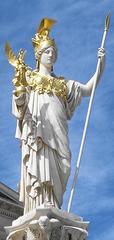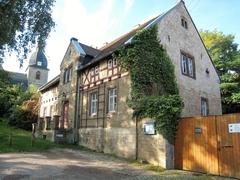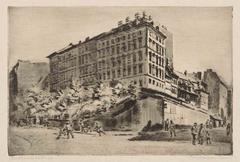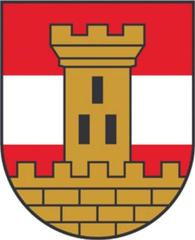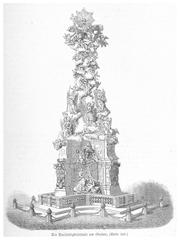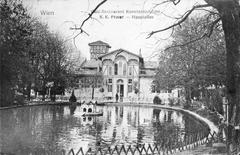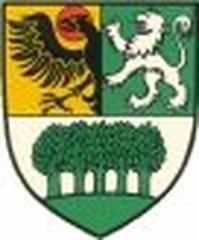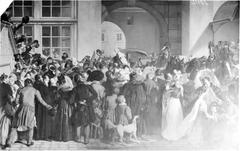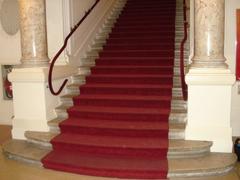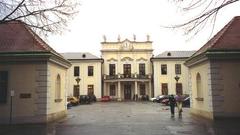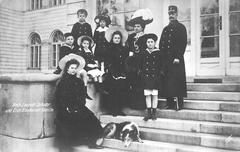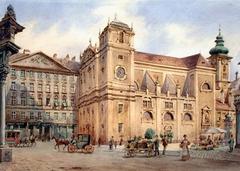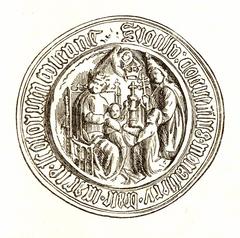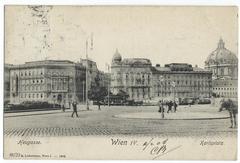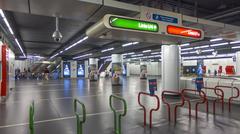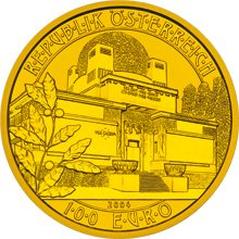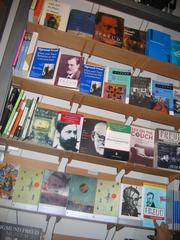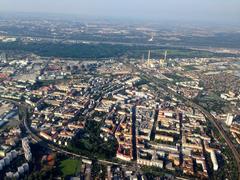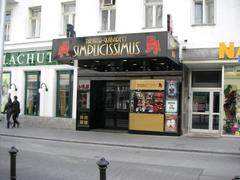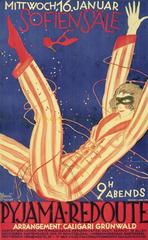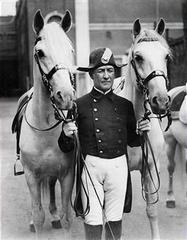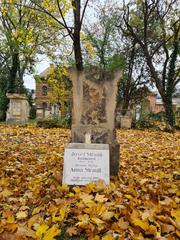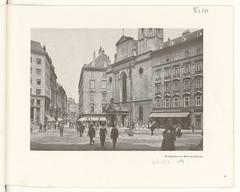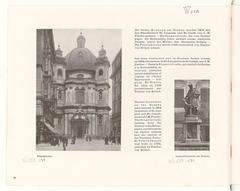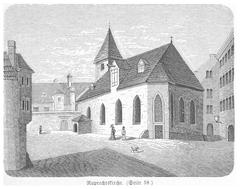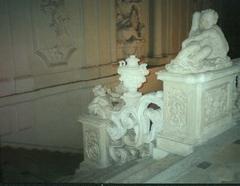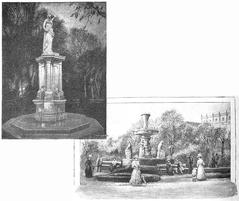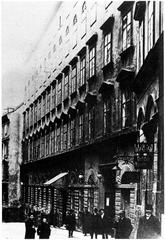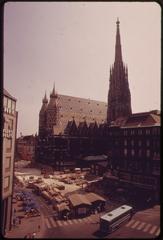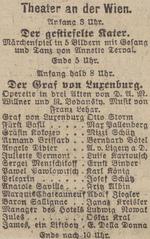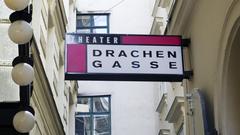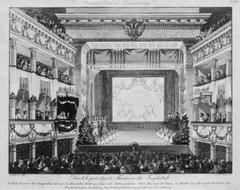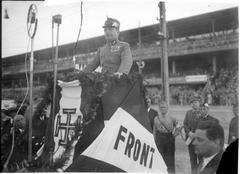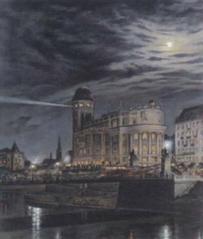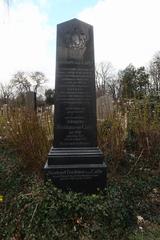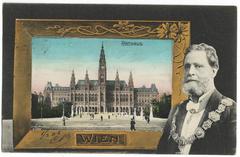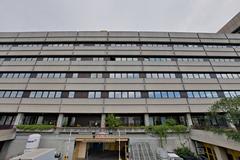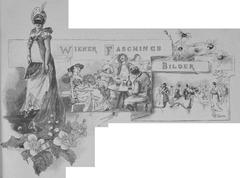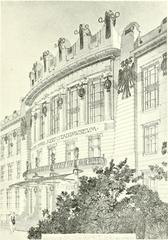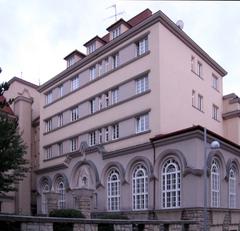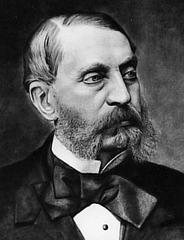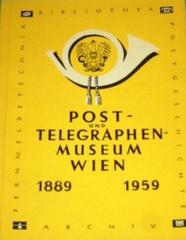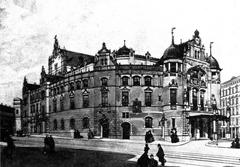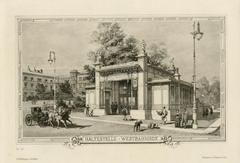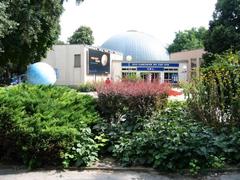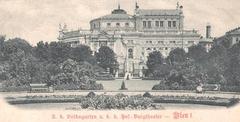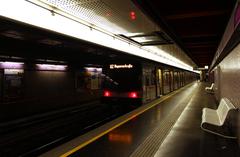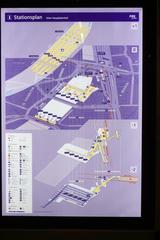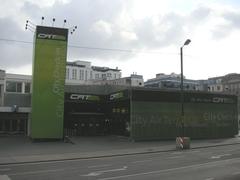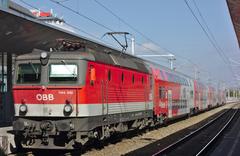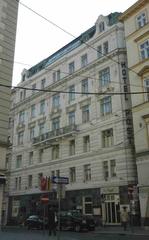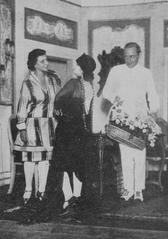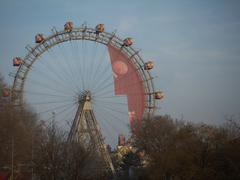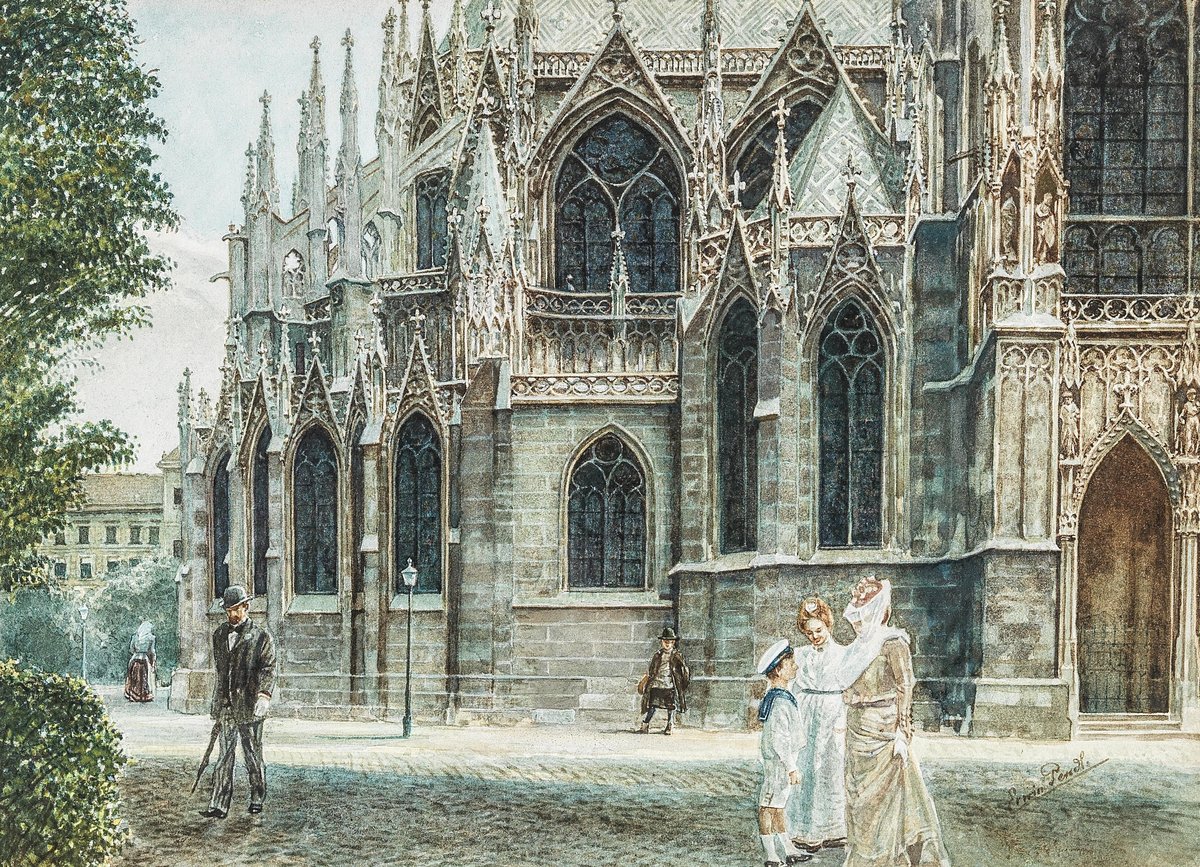
Visiting Hours and Tickets for Votivkirche in Vienna
Date: 18/07/2024
Introduction
Table of Contents
- [Introduction](#introductionintroduction)
- [A History of Gratitude and Architectural Beauty](#a-history-of-gratitude-and-architectural-beautya-history-of-gratitude-and-architectural-beauty)
- [The Attempted Assassination and the Birth of a Promise](#the-attempted-assassination-and-the-birth-of-a-promisethe-attempted-assassination-and-the-birth-of-a-promise)
- [From Vision to Reality - The Construction of the Votivkirche](#from-vision-to-reality---the-construction-of-the-votivkirchefrom-vision-to-reality---the-construction-of-the-votivkirche)
- [Architectural Significance - A Neo-Gothic Masterpiece](#architectural-significance---a-neo-gothic-masterpiecearchitectural-significance---a-neo-gothic-masterpiece)
- [Visiting Votivkirche - Practical Information](#visiting-votivkirche---practical-informationvisiting-votivkirche---practical-information)
- [Visiting Hours](#visiting-hoursvisiting-hours)
- [Tickets](#ticketstickets)
- [Nearby Attractions](#nearby-attractionsnearby-attractions)
- [Accessibility](#accessibilityaccessibility)
- [The Votivkirche Today - A Place of Worship and More](#the-votivkirche-today---a-place-of-worship-and-morethe-votivkirche-today---a-place-of-worship-and-more)
- [FAQ](#faqfaq)
- [Conclusion](#conclusionconclusion)
- [Call to Action](#call-to-actioncall-to-action)
- [References](#referencesreferences)
A History of Gratitude and Architectural Beauty
The Votivkirche, or Votive Church, in Vienna is not just a stunning example of neo-Gothic architecture; it’s a monument to gratitude and a testament to the enduring spirit of the Habsburg dynasty. Its story begins in 1853 with a near-tragic event that shook the empire.
The Attempted Assassination and the Birth of a Promise
On February 18, 1853, a young Hungarian tailor named János Libényi attempted to assassinate Emperor Franz Joseph I while he was strolling with one of his officers on the old city defenses of Vienna. The Emperor escaped unharmed thanks to the quick action of his officer, Maximilian Karl Lamoral O’Donnell von Tyrconnell, whose thick collar deflected the blow, and the intervention of a nearby butcher, Josef Ettenreich, who apprehended the attacker.
This event deeply moved the Emperor’s brother, Archduke Ferdinand Maximilian, who initiated a campaign to erect a church as a symbol of gratitude for the Emperor’s miraculous escape. The church was to be a “votive offering,” hence the name Votivkirche.
From Vision to Reality - The Construction of the Votivkirche
A competition was held to choose the design for this grand project, attracting submissions from across Europe. The winning design came from a relatively unknown 26-year-old architect, Heinrich von Ferstel. Ferstel’s vision was ambitious - a neo-Gothic masterpiece inspired by the great cathedrals of France, particularly the Cologne Cathedral.
Construction began in 1856, financed by donations from across the empire and personally overseen by Emperor Franz Joseph I. The project proved to be a massive undertaking, taking 23 years to complete. The church was finally consecrated in 1879, marking the silver jubilee of Franz Joseph I and his wife, Empress Elisabeth.
Architectural Significance - A Neo-Gothic Masterpiece
The Votivkirche stands as one of the most important neo-Gothic churches in the world. Its towering spires, intricate facade, and richly decorated interior are a testament to the architectural prowess of the period.
- Towers of Faith - The church’s two 99-meter-tall spires dominate the Vienna skyline, serving as a constant reminder of the city’s rich history.
- A Facade Rich in Detail - The main facade is adorned with sculptures of saints and biblical figures, while the intricate stained-glass windows, many of which are original, bathe the interior in a kaleidoscope of colors.
- A Glimpse into the Past - Inside, the Votivkirche houses several chapels, each with its own unique history and artistic treasures. The Habsburg Chapel, for instance, contains the hearts of several Habsburg emperors, while the Antwerp Altar, a masterpiece of Flemish art, dates back to the 16th century.
Visiting Votivkirche - Practical Information
Visiting Hours
Tickets
Admission to the Votivkirche is free, but donations are encouraged to help maintain this historic site. Guided tours are available for a small fee and provide a deeper insight into the church’s history and architecture.
Nearby Attractions
Located in the heart of Vienna, the Votivkirche is surrounded by other historical sites such as the University of Vienna, the Rathaus (City Hall), and the Sigmund Freud Museum. Visitors can easily spend a day exploring the rich history and culture of this area.
Accessibility
The Votivkirche is accessible to visitors with disabilities, with ramps and elevators available for ease of access.
The Votivkirche Today - A Place of Worship and More
Today, the Votivkirche remains an active place of worship, hosting regular services and special events. It also serves as a venue for concerts, taking advantage of its exceptional acoustics.
Beyond its religious and cultural significance, the Votivkirche stands as a symbol of Vienna’s resilience and the enduring power of faith. It’s a place where history and art intertwine, offering visitors a glimpse into the heart of the Habsburg Empire and the architectural splendor of the neo-Gothic era.
FAQ
What are the Votivkirche visiting hours?
The Votivkirche is open from Monday to Saturday, 9:00 AM to 6:00 PM, and on Sundays from 1:00 PM to 6:00 PM.
How much are tickets for Votivkirche?
Admission is free, but donations are welcome. Guided tours are available for a small fee.
Conclusion
Whether you’re a history buff, an architecture enthusiast, or simply looking for a serene place of worship, the Votivkirche is a must-visit destination in Vienna. Plan your visit today and immerse yourself in the rich history and stunning beauty of this neo-Gothic masterpiece.
Call to Action
For more information on visiting the Votivkirche and other historical sites in Vienna, download the Audiala app, check out related posts on our website, or follow us on social media for updates.
